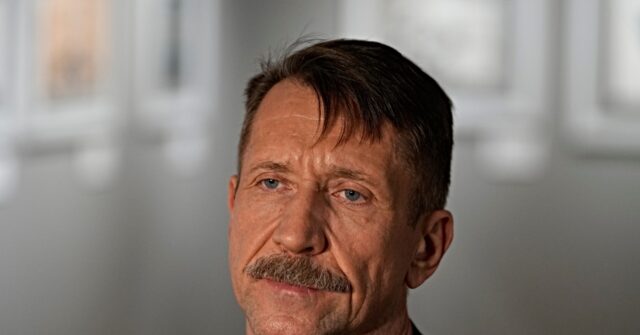Viktor Bout, a notorious Russian arms dealer known as the “Merchant of Death,” recently made headlines again following his release in a December 2022 prisoner swap orchestrated by President Joe Biden, who exchanged him for WNBA star Brittney Griner. In an interview with Russia’s state-run media, TASS, Bout dismissed claims from a Wall Street Journal (WSJ) report that he was re-engaging in the arms trade by allegedly supplying small arms to the Houthi terrorists in Yemen. He branded these allegations as “fake news” and clickbait, asserting that they were unfounded and lacked substance. His comments came in the context of whispers that Houthi representatives had visited Moscow with ambitions of securing a $10 million weapons deal.
Further discussing the WSJ report, Bout criticized the publication for allegedly deviating from its roots as an economic news outlet to a vehicle for political bias. He leveraged the case of WSJ reporter Evan Gershkovich, who was arrested by Russian authorities on charges of espionage. Bout insinuated that the treatment of Gershkovich, who was accused without evidence of gathering intelligence for the CIA, demonstrated a manipulation of facts by the WSJ, thus framing their articles against him as politically motivated. This claim from Bout was reflective of the broader narrative within Russia, where dissent against Western media is increasingly common, and he attempted to use Gershkovich’s plight as evidence of a supposed conspiracy against him.
The case of Evan Gershkovich has stirred worldwide condemnation, particularly from human rights and press freedom organizations, as his arrest and subsequent sentencing appear patterned in political absolutism rather than judicial integrity. Gershkovich was held for over a year without proper charges and then faced a secret trial leading to a harsh 16-year prison sentence, all of which Bout pointed to as proof that Western media narratives were designed to serve ulterior motives. The broader implications of such high-profile arrests underline the precarious situation for journalists and foreign nationals in Russia, paralleling Bout’s assertions with a narrative that seeks to undermine the credibility of U.S. news organizations.
Bout’s reputation as an arms dealer is notorious; he gained international fame for reportedly supplying weapons to various terrorist factions, including al-Qaeda and Hezbollah. His capture by U.S. law enforcement in 2008 during a sting operation aimed at selling arms to Colombian terrorists marked a significant moment in global arms trafficking enforcement. He faced multiple charges, including conspiracy to kill Americans, which fueled anger among law enforcement veterans when he was ultimately released. These experts expressed grave concerns regarding the threat Bout poses to international security, underscoring ongoing fears that his return to the global stage could rejuvenate dangerous arms trafficking networks.
Despite his documented history of violence and arms dealing, Bout attempted to rebrand himself by claiming to have reformed and entered legitimate politics in Russia. He was recently elected to the regional assembly of Ulyanovsk province as a member of the ultra-nationalist Liberal Democratic Party. While he argued that this political switch should be recognized and commended by Western media, it instead heightened alarms among security officials. The notion of Bout gaining political influence following his release from U.S. custody aligned with fears that he could leverage his notoriety and experience in a new capacity, potentially threatening regional and global stability further.
As Bout navigates his reemergence in Russian politics, the duality of his narrative presents a challenge to international observers. On one hand, he seeks to reshape his public persona as a legitimate political figure moving beyond his shadowy past; on the other, his history of arms dealing and the suspicious circumstances surrounding his release illuminate a precarious intersection of criminality and statecraft. The ongoing discourse about him—whether through the lens of his scripted rehabilitation or the inherent risk he embodies—highlights a growing intersection between crime, politics, and geopolitics, as the world continues to grapple with the ramifications of such complicated narratives.

